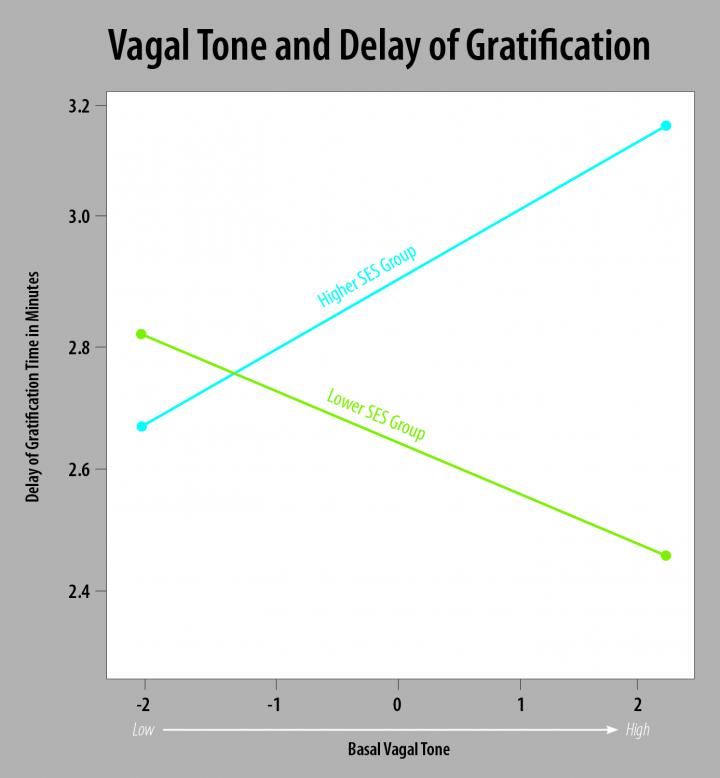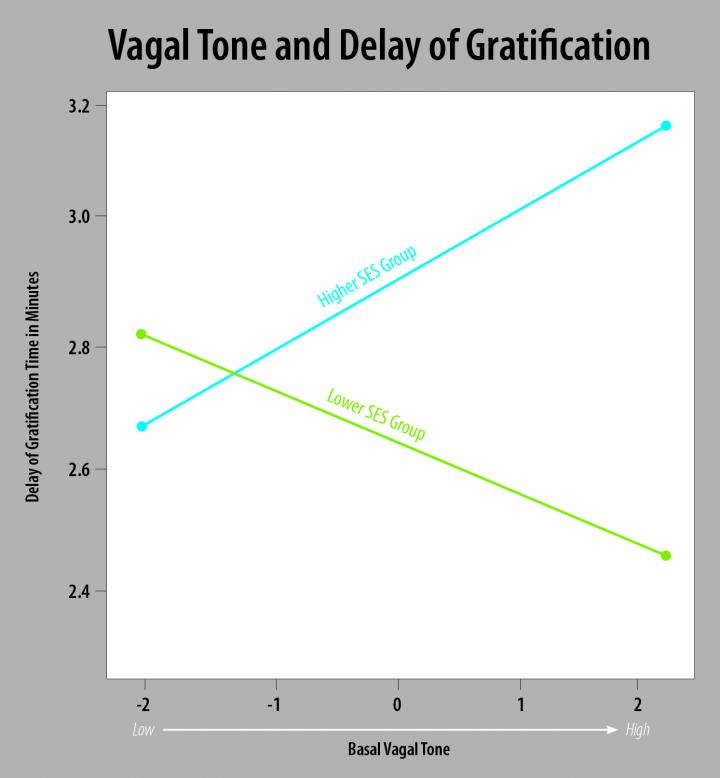
Researchers from the University of Rochester suggest that children raised in poverty may have been mistakenly labeled as “maladapted” for what appears to be a lack of self-control. The new study finds that what looks like selfishness may actually be beneficial behavior that’s based on a child’s environmental context–that is to say, from being raised in a resource-poor environment.
The classic 1970s “marshmallow tests” assessed impulse control in preschoolers. Children were given a choice to take a single marshmallow immediately, or to wait several minutes and earn two of the puffy treats as a reward. Children who displayed an apparent lack of self-control–demonstrated by taking the single treat–were deemed “maladapted.” Follow-up studies identified children who are raised in poverty are far less likely to postpone such sweet temptations than their economically better-off counterparts.
“What looks like impulsiveness may actually be an adaptive strategy–kids who are brought up in homes with limited resources have learned it’s advantageous to seize the moment,” said Melissa Sturge-Apple, associate professor of psychology at the University of Rochester and clinical researcher at Mt. Hope Family Center (MHFC).
For the new study, Sturge-Apple and her colleagues measured the vagal tone of preschoolers before they participated in reward-based experiments. The vagus nerve streams information from the heart, lungs, stomach, and other organs to the brain. It’s associated with the moderation of moods including fear and anxiety. High vagal tone is a physiological indicator of what we would call “grace under fire”–the body’s ability to slow down heart rate, blood pressure, and respiration, which can allow for a thoughtful response.
Previous research in reward-based studies has shown that for children from high-resource households, high vagal tone is predictive of their ability to delay gratification. The higher their vagal tone, the longer these children can delay–they are able to keep calm, wait, and earn additional rewards.
In the Rochester study published in Psychological Science, however, children from low-resource households that have high vagal tone did not demonstrate the same behavior as middle class children. In fact, it was just the opposite. For children living in poverty, the higher their vagal tone, the quicker they decided to take the single treat–M&Ms candies in this case–and not wait despite the promise of more.
“From a normative model of psychology, this result makes no sense. But when we considered what would be the most optimal behavior in a high-risk environment, then this makes complete sense–it’s survival of the quickest,” Sturge-Apple explained. “Context means everything. When all is well and prosperous, kids who are highly attuned to what is going on around them can wait, but when things are scarce and unpredictable, then the question becomes “why wait?”
Jennifer Suor and Patrick Davies from Rochester, Dante Cicchetti of the University of Minnesota, Michael Skibo of Westchester Community College, and Fred Rogosch of Mt. Hope Family Center co-authored the study. The National Institute of Nursing Research and the National Institute of Mental Health supported the research.
###
Media Contact
Monique Patenaude
[email protected]
585-276-3693
@UofR
http://www.rochester.edu
The post Can’t resist temptation? That may not be a bad thing appeared first on Scienmag.





